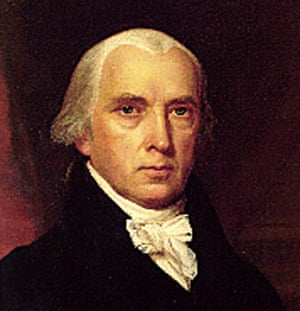What is the worst thing about Donald Trump? The lies? The racist stereotypes? The misogyny? The alleged gropings? The apparent refusal to accept democratic outcomes? All these are bad enough. But they’re not the worst. The worst thing about Donald Trump is that he’s the man in the mirror.
We love to horrify ourselves with his excesses, and to see him as a monstrous outlier, the polar opposite of everything a modern, civilised society represents. But he is nothing of the kind. He is the distillation of all that we have been induced to desire and admire. Trump is so repulsive not because he offends our civilisation’s most basic values, but because he embodies them.
Trump personifies the traits promoted by the media and corporate worlds he affects to revile; the worlds that created him. He is the fetishisation of wealth, power and image in a nation where extrinsic values are championed throughout public discourse. His conspicuous consumption, self-amplification and towering (if fragile) ego are in tune with the dominant narratives of our age.
The entire electoral process is stolen from the American people before they even cast their vote
As the recipient of vast inherited wealth who markets himself as solely responsible for his good fortune, he is the man of our times. The US Apprentice TV show which he hosted tells the story of everything he is not: the little guy dragging himself up from the bottom through enterprise and skill. None of this distinguishes him from the majority of the very rich, whose entrepreneurial image, loyally projected by the media, clashes with their histories of huge bequests, government assistance, monopolies and rent-seeking.
If his politics differ from those of the rest of the modern Republican party, it is because he is, in some respects, more liberal. Every vice, for the Republican trailblazers such as Ted Cruz and Scott Walker, is now a virtue; every virtue a vice. Encouraged by the corporate media, the Republicans have been waging a full-spectrum assault on empathy, altruism and the decencies we owe to other people. Their gleeful stoving in of faces, their cackling destruction of political safeguards and democratic norms, their stomping on all that is generous and caring and cooperative in human nature, have turned the party into a game of Mortal Kombat scripted by Breitbart News.
Did Trump invent the xenophobia and racism that infuse his campaign? Did he invent his conspiracy theories about stolen elections and the criminality of his opponents? No. They were there all along. What is new and different about him is that he has streamlined these narratives into a virulent demagoguery. But the opportunity has been building for years; all that was required was someone blunt and unscrupulous enough to take it.

The fourth US president, James Madison. Photograph: White House/Reuters
Nor can you single out Trump for ignoring, denying and deriding the key issues of our time, such as climate change. Almost all prominent Republicans have been at it. In fact, across the four presidential debates, not one question about climate change was asked. Even when politicians and journalists accept the science, it makes little difference if they avoid the subject like the plague.
America’s fourth president, James Madison, envisaged the United States constitution as representation tempered by competition between factions. In the 10th federalist paper, written in 1787, he argued that large republics were better insulated from corruption than small, or “pure” democracies, as the greater number of citizens would make it “more difficult for unworthy candidates to practise with success the vicious arts by which elections are too often carried”. A large electorate would protect the system against oppressive interest groups. Politics practised on a grand scale would be more likely to select people of “enlightened views and virtuous sentiments”.
Instead, the US – in common with many other nations – now suffers the worst of both worlds: a large electorate dominated by a tiny faction. Instead of republics being governed, as Madison feared, by “the secret wishes of an unjust and interested majority”, they are beholden to the not-so-secret wishes of an unjust and interested minority. What Madison could not have foreseen was the extent to which unconstrained campaign finance and a sophisticated lobbying industry would come to dominate an entire nation, regardless of its size.
For every representative, Republican or Democrat, who retains a trace element of independence, there are three sitting in the breast pocket of corporate capital. Since the supreme court decided that there should be no effective limits on campaign finance, and, to a lesser extent, long before, candidates have been reduced to tongue-tied automata, incapable of responding to those in need of help, incapable of regulating those in need of restraint, for fear of upsetting their funders.
Democracy in the US is so corrupted by money that it is no longer recognisable as democracy. You can kick individual politicians out of office, but what do you do when the entire structure of politics is corrupt? Turn to the demagogue who rages into this political vacuum, denouncing the forces he exemplifies. The problem is not, as Trump claims, that the election will be stolen by ballot rigging. It is that the entire electoral process is stolen from the American people before they get anywhere near casting their votes. When Trump claims that the little guy is being screwed by the system, he’s right. The only problem is that he is the system.
The political constitution of the United States is not, as Madison envisaged, representation tempered by competition between factions. The true constitution is plutocracy tempered by scandal. In other words, all that impedes the absolute power of money is the occasional exposure of the excesses of the wealthy. What distinguishes Trump’s political career is that, until recently, his scandals have done him no harm.
Trump disgusts us because, where others use a dog whistle, he uses a klaxon. We hate to hear his themes so clearly articulated. But we know in our hearts that they suffuse the way the world is run.
Because this story did not begin with Trump, it will not end with Trump, however badly he may lose the election. Yes, he is a shallow, mendacious, boorish and extremely dangerous man. But those traits ensure that he is not an outsider but the perfect representation of his caste, the caste that runs the global economy and governs our politics. He is our system, stripped of its pretences.
Nor can you single out Trump for ignoring, denying and deriding the key issues of our time, such as climate change. Almost all prominent Republicans have been at it. In fact, across the four presidential debates, not one question about climate change was asked. Even when politicians and journalists accept the science, it makes little difference if they avoid the subject like the plague.
America’s fourth president, James Madison, envisaged the United States constitution as representation tempered by competition between factions. In the 10th federalist paper, written in 1787, he argued that large republics were better insulated from corruption than small, or “pure” democracies, as the greater number of citizens would make it “more difficult for unworthy candidates to practise with success the vicious arts by which elections are too often carried”. A large electorate would protect the system against oppressive interest groups. Politics practised on a grand scale would be more likely to select people of “enlightened views and virtuous sentiments”.
Instead, the US – in common with many other nations – now suffers the worst of both worlds: a large electorate dominated by a tiny faction. Instead of republics being governed, as Madison feared, by “the secret wishes of an unjust and interested majority”, they are beholden to the not-so-secret wishes of an unjust and interested minority. What Madison could not have foreseen was the extent to which unconstrained campaign finance and a sophisticated lobbying industry would come to dominate an entire nation, regardless of its size.
For every representative, Republican or Democrat, who retains a trace element of independence, there are three sitting in the breast pocket of corporate capital. Since the supreme court decided that there should be no effective limits on campaign finance, and, to a lesser extent, long before, candidates have been reduced to tongue-tied automata, incapable of responding to those in need of help, incapable of regulating those in need of restraint, for fear of upsetting their funders.
Democracy in the US is so corrupted by money that it is no longer recognisable as democracy. You can kick individual politicians out of office, but what do you do when the entire structure of politics is corrupt? Turn to the demagogue who rages into this political vacuum, denouncing the forces he exemplifies. The problem is not, as Trump claims, that the election will be stolen by ballot rigging. It is that the entire electoral process is stolen from the American people before they get anywhere near casting their votes. When Trump claims that the little guy is being screwed by the system, he’s right. The only problem is that he is the system.
The political constitution of the United States is not, as Madison envisaged, representation tempered by competition between factions. The true constitution is plutocracy tempered by scandal. In other words, all that impedes the absolute power of money is the occasional exposure of the excesses of the wealthy. What distinguishes Trump’s political career is that, until recently, his scandals have done him no harm.
Trump disgusts us because, where others use a dog whistle, he uses a klaxon. We hate to hear his themes so clearly articulated. But we know in our hearts that they suffuse the way the world is run.
Because this story did not begin with Trump, it will not end with Trump, however badly he may lose the election. Yes, he is a shallow, mendacious, boorish and extremely dangerous man. But those traits ensure that he is not an outsider but the perfect representation of his caste, the caste that runs the global economy and governs our politics. He is our system, stripped of its pretences.
